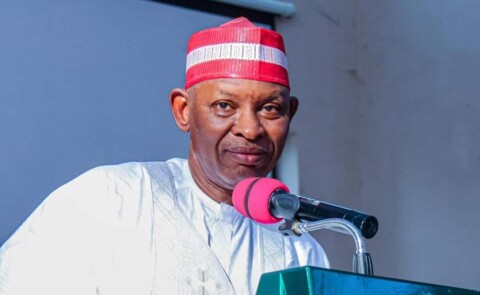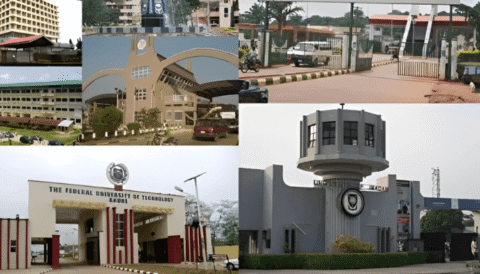As part of its ongoing reforms in the education sector, the Federal Government has announced plans to integrate Artificial Intelligence (AI) into curriculum delivery, reinforcing its commitment to providing inclusive and future-ready education for Nigerian children.
The Minister of Education, Dr. Morufu Olatunji Alausa, disclosed this at the International Conference on Smart Education (ICSE) 2025 held at the Universal Basic Education Commission (UBEC) Digital Resource Centre, Kano, Abuja. He also revealed Nigeria’s target of enrolling 10 million out-of-school children by 2027 under various education reform initiatives. These include the Hope for Quality Basic Education programme (Hope-Ed), backed by the World Bank and Global Partnership for Education (GPE), and the Nigeria Education Sector Renewal Initiative (NESRI).
The conference, organised by UBEC in collaboration with the Korean International Co-operation Agency (KOICA), drew policymakers, development partners, education administrators, teachers, and digital education experts from Nigeria and other African countries. It was aimed at reaffirming Nigeria’s resolve to leverage digital technology in transforming basic education.
Dr. Alausa emphasized the alignment of ICSE 2025 with President Bola Ahmed Tinubu’s Renewed Hope Agenda, noting that with 44 percent of Nigeria’s population under the age of 15, urgent re-engineering of the education system is critical to turning the youth bulge into a digital dividend. “We must equip our children with 21st-century skills to avoid a demographic disaster,” he stressed.
Also speaking at the event, the Ambassador of the Republic of Korea to Nigeria, Mr. Kim Pankyu, commended the long-standing collaboration between Nigeria and Korea in promoting smart education. He praised UBEC’s smart school programme and reaffirmed KOICA’s continued support in helping Nigeria achieve digital transformation in basic education. He stated that Korea’s own experience demonstrates that digital education can drive social inclusion and economic growth, and expressed confidence in Nigeria’s potential.
In her welcome address, UBEC Executive Secretary, Aisha Garba, reiterated that the conference was a strong signal that innovation in education was no longer optional but a necessity for progress, inclusion, and competitiveness. She outlined the objectives of the conference, including fostering knowledge sharing, promoting scholarship, and developing strategies to overcome tech-related challenges in education.
Garba noted that UBEC had gone beyond simply introducing technology into schools, and was now building a systematic, sustainable model to integrate digital innovation into teaching and learning. She highlighted efforts to empower teachers and education managers, create culturally relevant digital resources aligned with the national curriculum (in collaboration with NERDC and EdTech partners), and ensure equitable access to digital tools such as VR labs, smart devices, and solar-powered solutions for rural schools.
In her keynote address, Professor Francisca Oladipo, Vice Chancellor of Thomas Adewumi University, Kwara State, lauded UBEC and KOICA for organising what she called “a beautiful event that reflects Nigeria’s readiness for the future.” She described smart education as a necessity, not a luxury, and called for collaborative action from government, parents, teachers, and tech innovators to ensure successful implementation.
Professor Oladipo pointed out that Nigeria’s growing population—expected to exceed 400 million by 2050, with 40 percent under the age of 15—represents both a challenge and an opportunity. While acknowledging existing hurdles, she expressed optimism, citing the spread of mobile access, EdTech innovations, and state-level smart education initiatives in Abia, Enugu, Jigawa, and Niger as signs of progress. She also highlighted federal initiatives such as UBEC’s Teacher Internship Scheme and the National Digital Learning Policy as strategic tools for driving change.
Delegates from several African countries, including Benin, Cameroon, Conakry, Congo, Ivory Coast, Kenya, Sao Tome, Sierra Leone, and Togo, were also in attendance at the conference.





